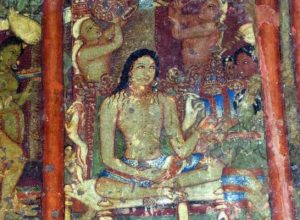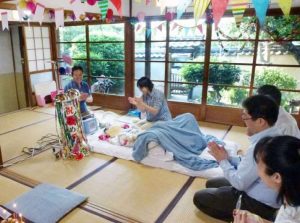Visiting family in Toronto this week, the news has been dominated by the story of a popular radio show host accused of ongoing harassment and violence towards a number of women. When he was first fired but no charges had been laid, many people spoke out in his defense, dismissing the allegations and accusing the anonymous women of trying to gain celebrity. Now, nine charges have been formally laid and more stories are coming forth daily. It seems impossible that the charges could be false, and everyone is speaking out against him.
This story has opened the door to more stories. Stories of other celebrities who have been accused of sexual violence but never tried and whose careers continue to flourish. Stories of the multitudes of women who don’t report the violence they’ve survived, so that only three in a thousand instances of violence against women result in conviction. Stories of parents who love their little boys and have no idea how to keep them from becoming the next attacker. So many stories.
Beneath the stories lies a tangled web of emotions. People are feeling betrayed by the guy they thought they knew so well from the popular radio show. They’re feeling the pain of all the women who are telling their stories. They’re feeling despair over a society that can send a man to the moon but still hasn’t found a way to stop violence. A friend said, “What’s so hard is that he seemed so sweet and witty, even a feminist on the air, and now this.” What I heard her and so many others say was, “I loved this guy and now I have to hate him.” As if there are only two choices—good versus evil. Even the women are being tried in the court of public opinion. Those who lay formal charges publicly are the heroines and those make anonymous accusations are the demons.
In the Judeo-Christian “West,” this is how we’ve been trained to think for millennia so it’s no surprise that this conversation follows suit. We have a habit of putting everyone, ourselves included, into boxes labeled “good” or “evil.” We want to think that the “bad guys,” the maras if you will, are far away. But they’re not. We don’t want to see the demons in our midst because we don’t want to see the demons within. It’s uncomfortable. It’s painful. It’s scary. And that’s okay.
Fortunately, Dharma practice teaches us to look beyond first impressions. We learn that reality is always changing and that everything is intimately connected. Therefore, the world is more complicated than good versus evil. We learn that changing our thought patterns and our behavior can feel uncomfortable and can also bring joy and freedom. We learn that we all have a Buddha and a mara within, and that dwelling on one side or the other keeps us in ignorance. We practice waking up to understand. Without understanding there is no healing, because healing means being whole.
As practitioners, can we hold the uncomfortable truth that some people are both brilliant and abusive? Can we respect survivors of abuse whether they press charges or not? Can we remain open to care about the suffering around us without drowning in it? Can we remain open to the courage and the violence that lies within each one of us, allowing ourselves to be flawed and learning and whole all at once? When faced with stories like the one about the radio host, these are the questions that I ask myself over and over again. Usually my answer is, “Sometimes.”
If the radio show host does get tried and goes to prison, will that bring healing? Maybe he needs to go to prison, but can it be done as an act of love, for the good of all people rather than as damnation? Can the sentence come in a way that says, “Hey baby, you’ve been hurting too many people so you have to step out for a while. Please think about what you’ve been doing. I hope that this helps.”
If the public discussion continues to focus on individual behavior, praising saints and punishing sinners, the violence can only continue. All phenomena arise due to conditions. What are the conditions that manifest violence? That manifest fear, shame, and ignorance? These are not easy questions. But it’s in everyone’s best interests to ask and to see what we can do to understand the situation and to transform it.
We cannot control our idols and there’s only so much we can do to shape public policy and the courts. What we can do at any given time is to practice the compassion and the healing that we yearn for. Right here and now. In our own hearts. When understanding and compassion are present within us, then our actions of thought, speech, and body cannot help but manifest peace and healing. Because healing means being whole.
Even as I write this, I see the urge arise to read the latest headlines around the story, to listen to old interviews by this man in order to “form my opinion of him.” Despite my awareness of impermanence, the craving to fix an opinion is still so strong. As if anything there could be one solid conclusion, permanent. In this tightening of my arms and grasping of my mind, I also know that it’s possible to sit with the impulses and to smile gently. Then I ask myself, “What will lessen suffering? What will bring about more healing?” I have no answers. I can only keep asking.
The Buddha was very clear. In this life, there is suffering and there is a way to go beyond suffering. We cannot reach the Other Shore if we stick to superficial labels and narrow perspectives. We all want peace. To get there, we must take care of everyone involved. When we draw the line between the sinners and the saints, everyone gets maimed because we’re all sinners and saints sometimes. We must see more than what meets the eye, because healing means being whole.









